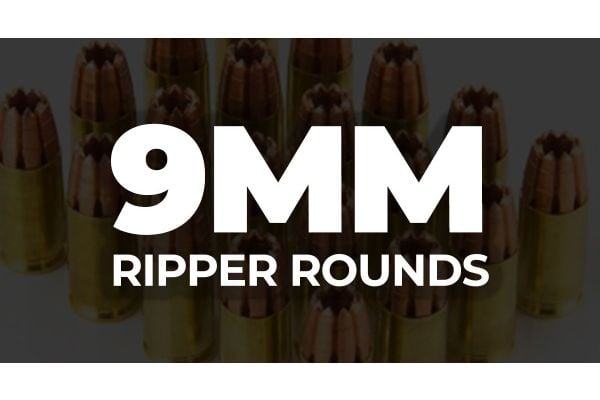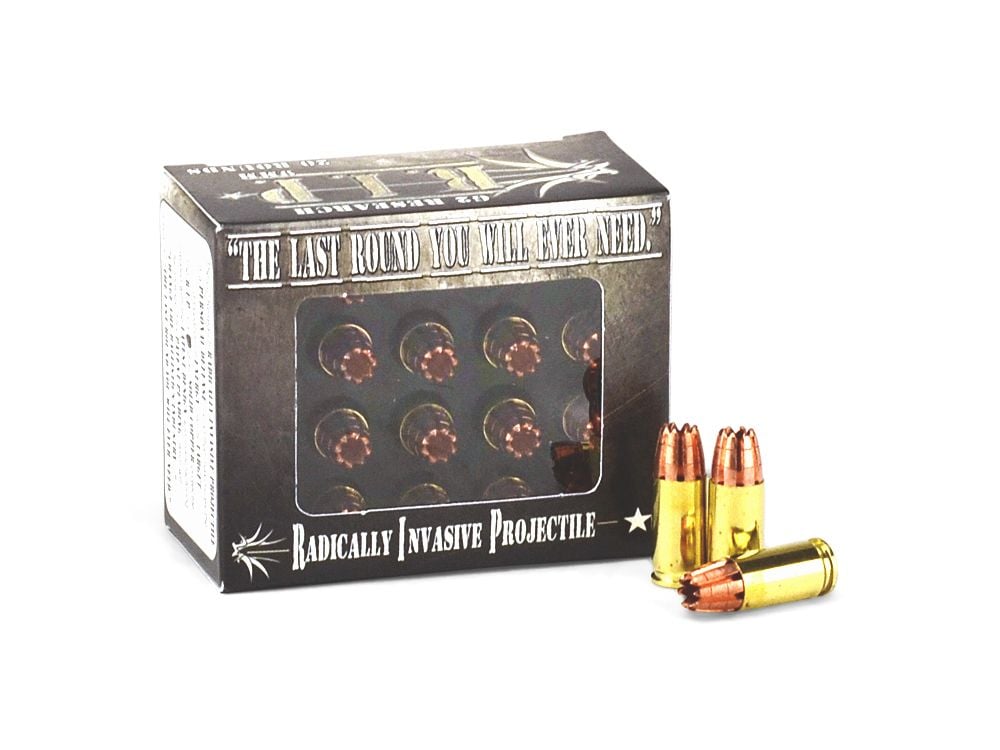What are “9mm ripper rounds”?
“9mm ripper rounds” is a conversational name many shooters use for the 9mm version of G2 Research’s R.I.P. ammunition.
R.I.P. stands for Radically Invasive Projectile and is a precision-machined, lead-free copper projectile engineered to fragment into multiple petal-like pieces on soft-tissue impact to create multiple wound channels. The design departs from traditional hollow points and is marketed primarily for self-defense.
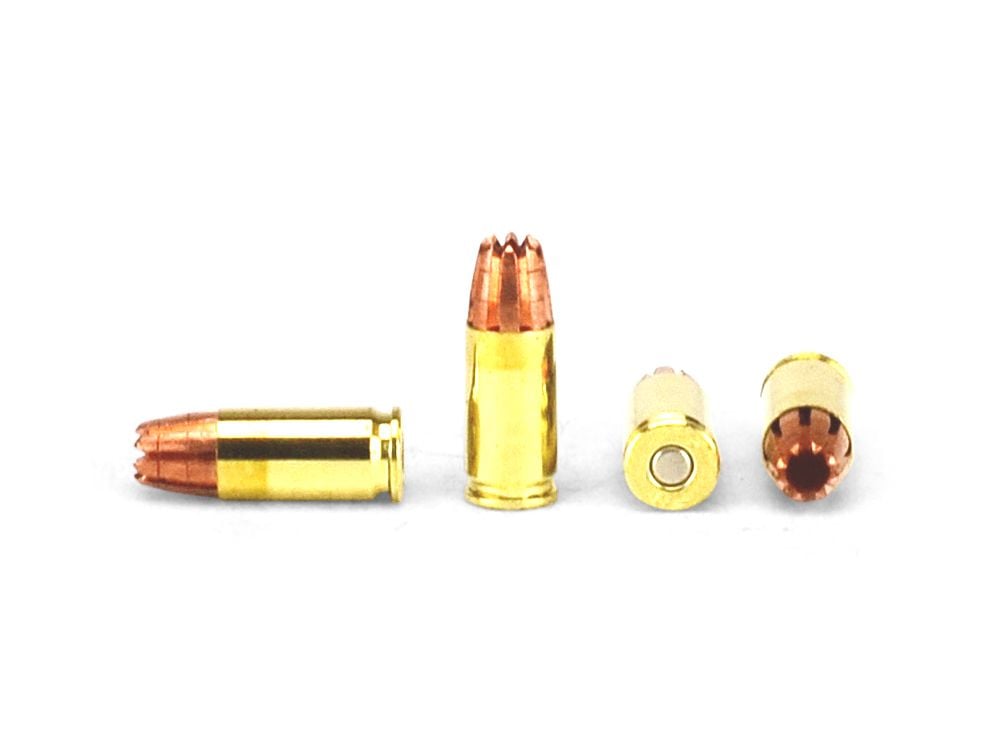

G2 Research introduced the R.I.P. line in the 2010s as an attempt to rethink terminal performance for self-defense ammunition.
The company promoted a machined copper projectile with carved trocars that open and fragment on impact, producing several separate wound tracks instead of a single channel. This innovation generated a lot of attention in the firearms community and mainstream press because of the dramatic terminal effects shown in demonstrations.
R.I.P. bullets are solid copper and machined with radial grooves and pointed petals at the nose. On striking soft tissue or ballistic gelatin the petals separate and spread outward while a central mass continues forward.
The result is multiple smaller projectiles from a single cartridge producing several wound channels and a larger effective diameter of trauma compared with a single conventional projectile. This explanation intentionally avoids detailed engineering parameters and does not provide instructions for constructing or modifying ammunition.
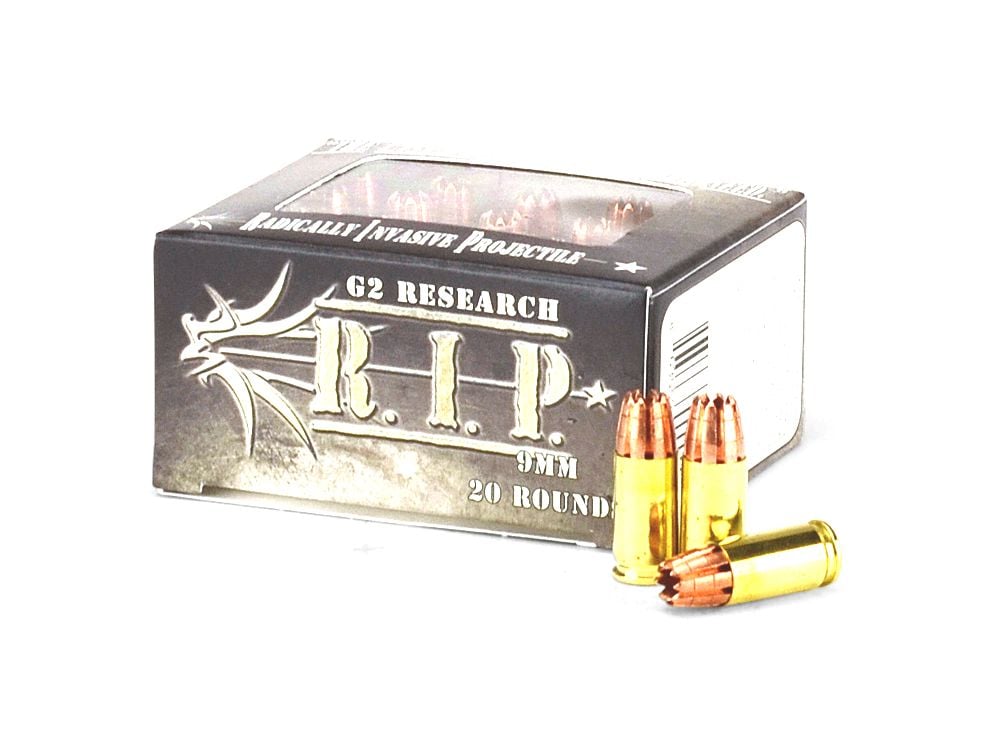

Main use cases
- Self defense and concealed carry. The primary market and marketing focus for 9mm R.I.P. rounds is civilian self defense and personal protection. Many users who adopt them are looking for a round that prioritizes incapacitation and energy transfer.
- Home defense. The wide fragmentation pattern is presented by some proponents as beneficial in close ranges typical of home defense scenarios, though tradeoffs exist when it comes to penetration and barrier performance.
- Specialty hunting and barrier testing. G2 Research and some retailers also market certain R.I.P. offerings as useful for small game or niche hunting applications and for interest from ballistic enthusiasts who test barrier performance and terminal effects. Retail product pages and independent reviews document these claims.
Performance tradeoffs
R.I.P. rounds are controversial. Advocates point to large temporary wound profiles and multiple wound channels. Critics highlight concerns about variable penetration, inconsistent fragmentation across barriers, and the ethical and legal optics of marketing highly fragmenting rounds.
Several mainstream outlets covered the debate when the rounds became widely known. If you are considering any defensive load, weigh terminal performance, barrier behavior, your likely engagement distances, and local legal or department policies.


Preferred platforms
Because R.I.P. is a 9mm Luger cartridge, it is compatible with any reliably functioning handgun chambered in 9x19mm. Common everyday platforms people use with defensive 9mm loads include compact and full-size service pistols such as the Glock 19, SIG Sauer P320 series, Smith & Wesson M&P line, and similar polymer or steel framed 9mm carry guns.
When choosing a platform, prioritize firearms that are reliable with the specific defensive load you plan to carry. Run function testing with your chosen pistol and follow manufacturer guidance.
Buying, carry, and safety considerations
- Test for reliability: practice and function-test any defensive ammo in the exact pistol you intend to carry. Manufacturers and reviewers note that different loads can cycle differently in different guns.
- Overpenetration and barriers: fragmentation can reduce or increase penetration depending on the barrier. Be cautious about overreliance on a single test result; real-world situations vary.
- Legal and policy check: laws and organizational policies can vary by state and employer. Confirm local regulations and, if you are a law enforcement or security professional, check agency policy before selecting specialty ammunition.
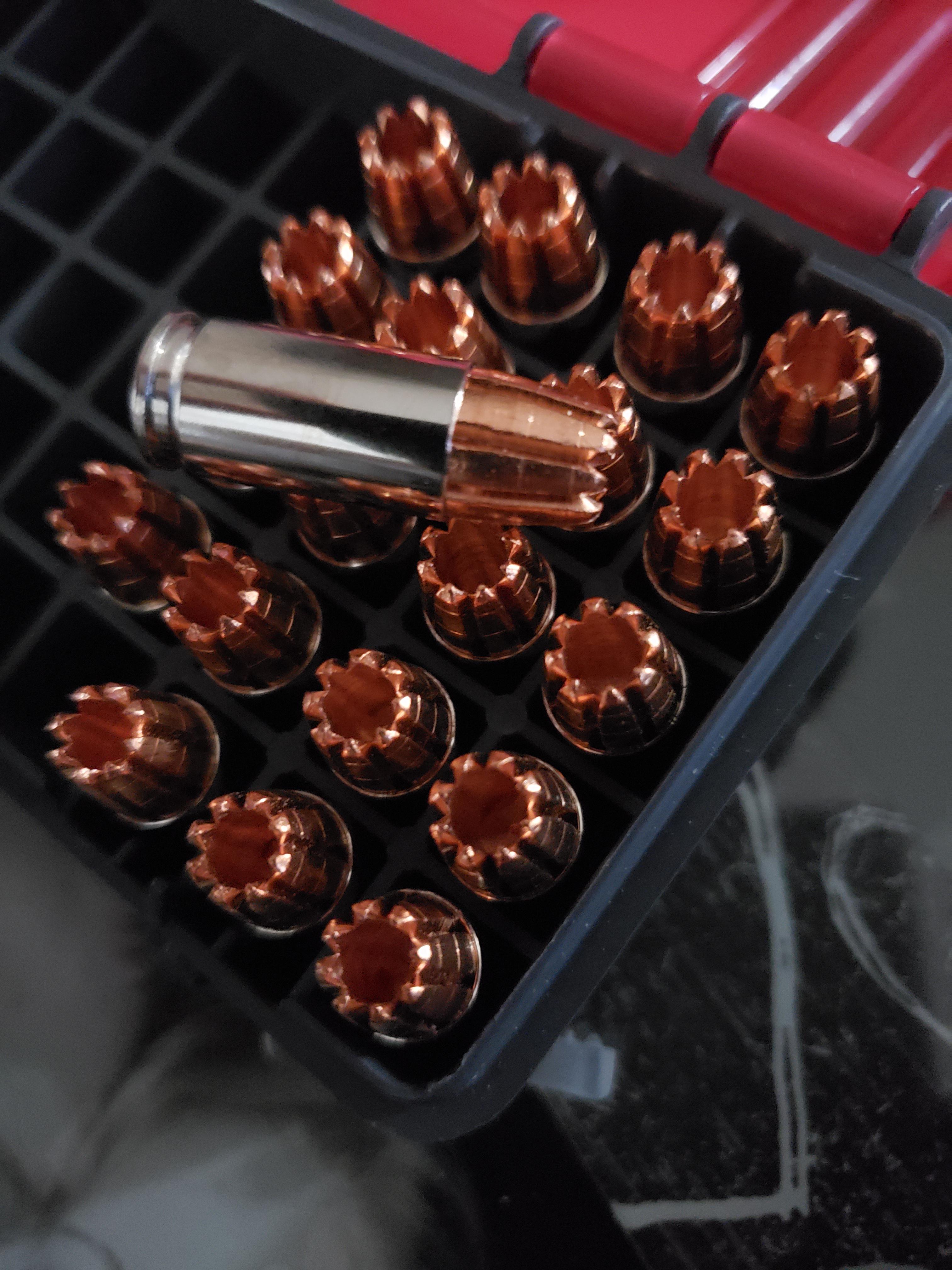

FAQs
Question: Are 9mm ripper rounds legal?
Answer: In most U.S. jurisdictions civilian purchase and possession of expanding or fragmenting handgun ammunition is legal, but rules can vary. Always check state and local law and organizational policies before buying or carrying specialty rounds.
Question: Are they better than standard hollow points?
Answer: “Better” depends on priorities. R.I.P. rounds focus on multi-channel trauma, while many hollow points are optimized for controlled expansion and predictable penetration. Pick the performance characteristics you value and verify them in testing.
Question: Will they damage my gun?
Answer: No reliable evidence suggests routine use of factory R.I.P. loads will damage a serviceable 9mm pistol. Still, standard good practice is to ensure your firearm is clean, properly maintained, and that the ammo cycles reliably in that specific gun.
Bottom line
“9mm ripper rounds” usually refers to G2 Research’s 9mm R.I.P. ammunition. They were created to change terminal performance by fragmenting into multiple trocars on soft tissue impact.
Their main market is self-defense and home defense, and they are used in typical 9mm carry and service pistols. They remain controversial, and like all defensive ammunition choices they deserve careful, realistic evaluation, legal checks, and function testing in your chosen handgun.
